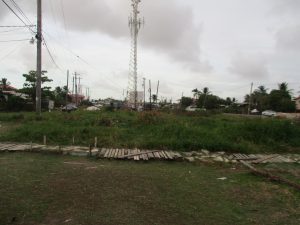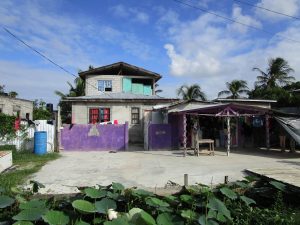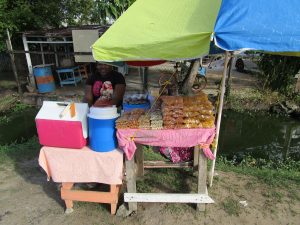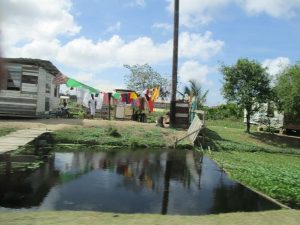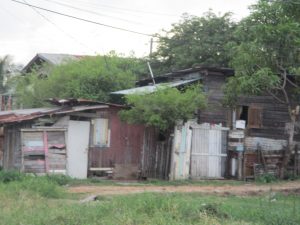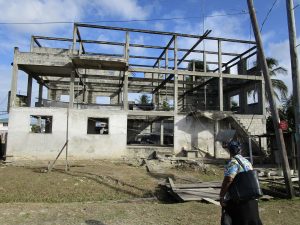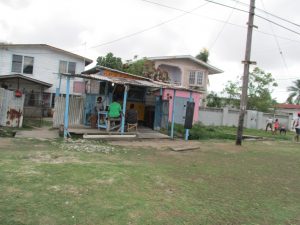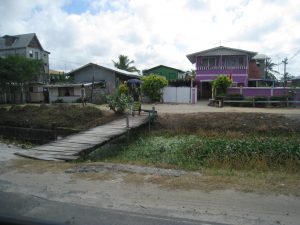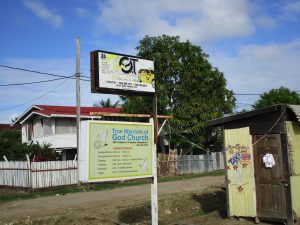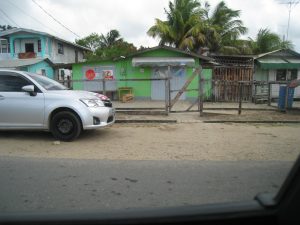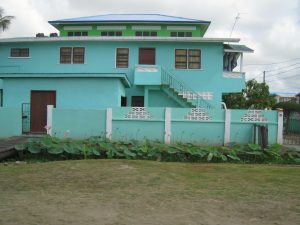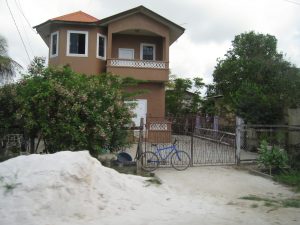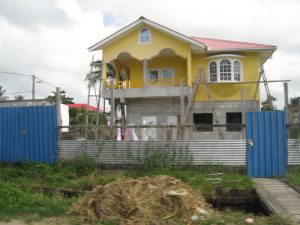Researchers
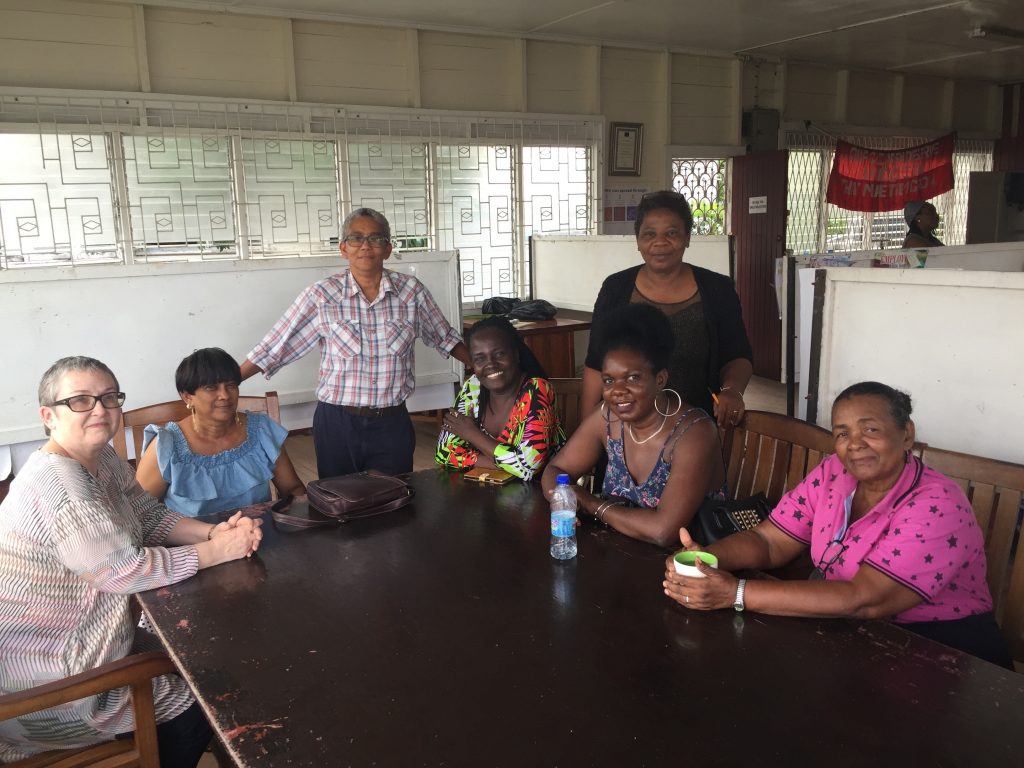
Red Thread's research team (from left): Linda Peake, Halima Khan, Karen de Souza, Susan Collymore, Wintress White, Joy (Nichola) Marcus, Vanessa Ross
Sophia
Sophia is a sprawling housing scheme which until the mid-1980s was abandoned rice and cane sugar farming land. Located on what was then the outskirts of Georgetown, the capital city, the first wave of squatters cleared the land of bush and wildlife to build their homes. The regularization of the area began in 1992 with surveys, lot allocations and some basic infrastructural installations. Over time governments have added roads, electricity, and basic services including schools and a health care centre. Sophia now has an estimated population of 50,000 persons, and although there has been significant upgrading of some dwellings, there is still a significant number of female-headed families, the majority of whom live on very low incomes. The national poverty levels and scarcity of housing land close to the capital has meant that people with no land are still attracted to Sophia, and there are still hundreds of squatters in the community.



